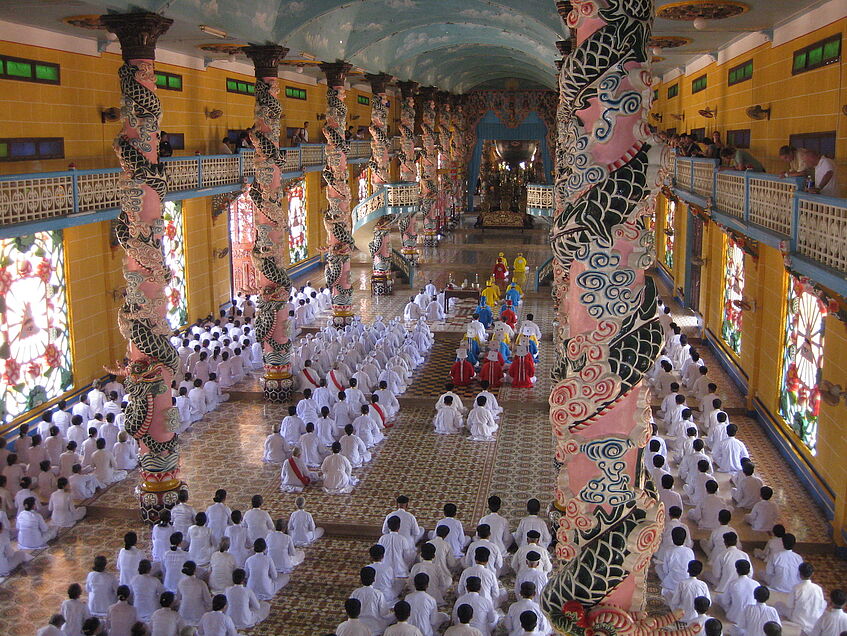An Annotation and Translation of the Pháp Chánh Truyền

Cao Đài ranks among the largest religious traditions in Vietnam with some estimated three to four million adherents worldwide. It also maintains growing congregations in diasporic Vietnamese communities around the world. This research focuses on an annotated translation into English of the Pháp Chánh Truyền (Chin. Fǎzhèngchuán 法正傳; literally "The Orthodox Dharma," translated by francophone Caodaists as Constitution Religieuse or "Religious Constitution"), which is one of the four canonical scriptures of Cao Đài. This scripture centres on the religious life and community organisation of the followers. It was compiled at the Cao Đài Holy See of Tây Ninh between 1926 and 1927, drawing on a preliminary selection of the earliest spirit-writing texts received.
This research explores the fabric of a key Cao Đài scripture, its contextualisation, and its transformation from the colonial period to the present day. Additionally, it brings into historical perspective the ethnographic data collected by the project team and traces the origin, the expansionist strategies, and the political trajectories of Cao Đài over a period of ninety years. This research also promotes a more nuanced vision of connected and circulatory history, colonialisation, spirit mediumship, and translingual practices in Vietnam that challenges some oft-repeated conventional understandings with new empirical data and critical insights.
